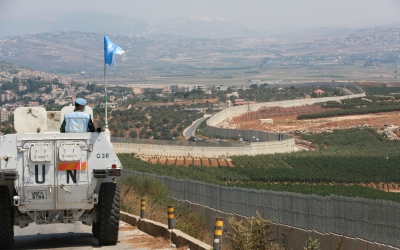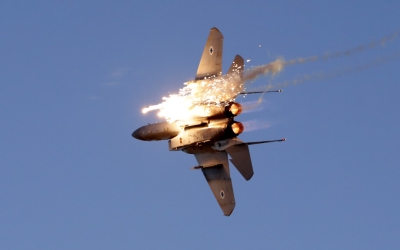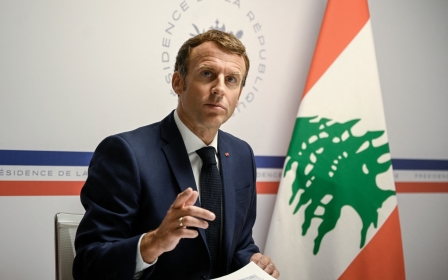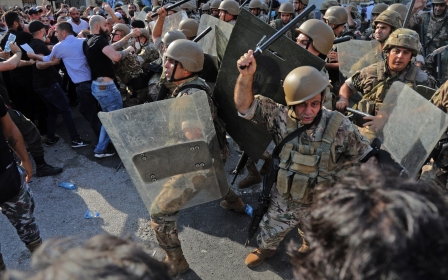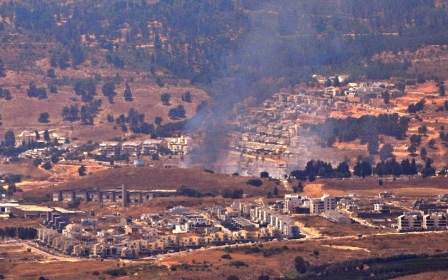Hezbollah chief warns Israel against escalation amid days of mutual cross-border attacks
Hezbollah's leader, Hassan Nasrallah, has said that while his group has so far chosen to respond to Israeli air strikes on open land, it could escalate with a different strategy in the future if needed.
Nasrallah, speaking at a news conference on Saturday, warned Israel against further attacks against its installations in south Lebanon following days of tit-for-tat strikes between the two.
New MEE newsletter: Jerusalem Dispatch
Sign up to get the latest insights and analysis on Israel-Palestine, alongside Turkey Unpacked and other MEE newsletters
"We are not looking for war, and we do not want to head towards war, but we are ready for it" if necessary, he said, echoing similar comments made by Israeli officials this week.
Hezbollah launched dozens of rockets towards Israeli forces on Friday, drawing retaliatory fire from Israel in the third day of cross-border attacks amid Lebanon's worsening economic crisis.
During Saturday's news conference, Nasrallah said Hezbollah wanted to show that Israeli air strikes would be responded to "appropriately and proportionately," adding that the group could target any open land in "Northern occupied Palestine," Galilee, or the occupied Syrian Golan Heights.
He also warned Israel against assuming that Hezbollah is preoccupied with Lebanon's internal crisis. "For us, our responsibilities are clear, which is to protect our people," said Nasrallah.
'A very dangerous development'
Calling the latest events "a very dangerous development," the Hezbollah leader said such a level of tensions had not been reached in 15 years, referencing the 2006 Israel-Hezbollah War.
On Friday, Israeli military spokesman Lieutenant Colonel Amnon Shefler told reporters that Iran had fired into open areas in the Golan Heights instead of populated ones "in order not to escalate the situation". The spokesman said Israel had responded by "striking the rocket launch sites in Lebanon".
Later that day the US State Department released a statement condemning Hezbollah's rocket fire "in the strongest terms," noting that US officials remain engaged with Israeli and Lebanese counterparts, as well as with the Lebanese Armed Forces.
"This violence puts Israelis and Lebanese at risk and jeopardizes Lebanon's stability and sovereignty," the department said.
"We call upon the Lebanese government urgently to prevent such attacks and bring the area under its control," it continued, also calling for the Lebanese government to facilitate full access for UN peacekeepers in Lebanon (UNIFIL).
UNIFIL has condemned the latest flare-up as a "very serious situation," urging "all parties to cease fire".
Middle East Eye delivers independent and unrivalled coverage and analysis of the Middle East, North Africa and beyond. To learn more about republishing this content and the associated fees, please fill out this form. More about MEE can be found here.


